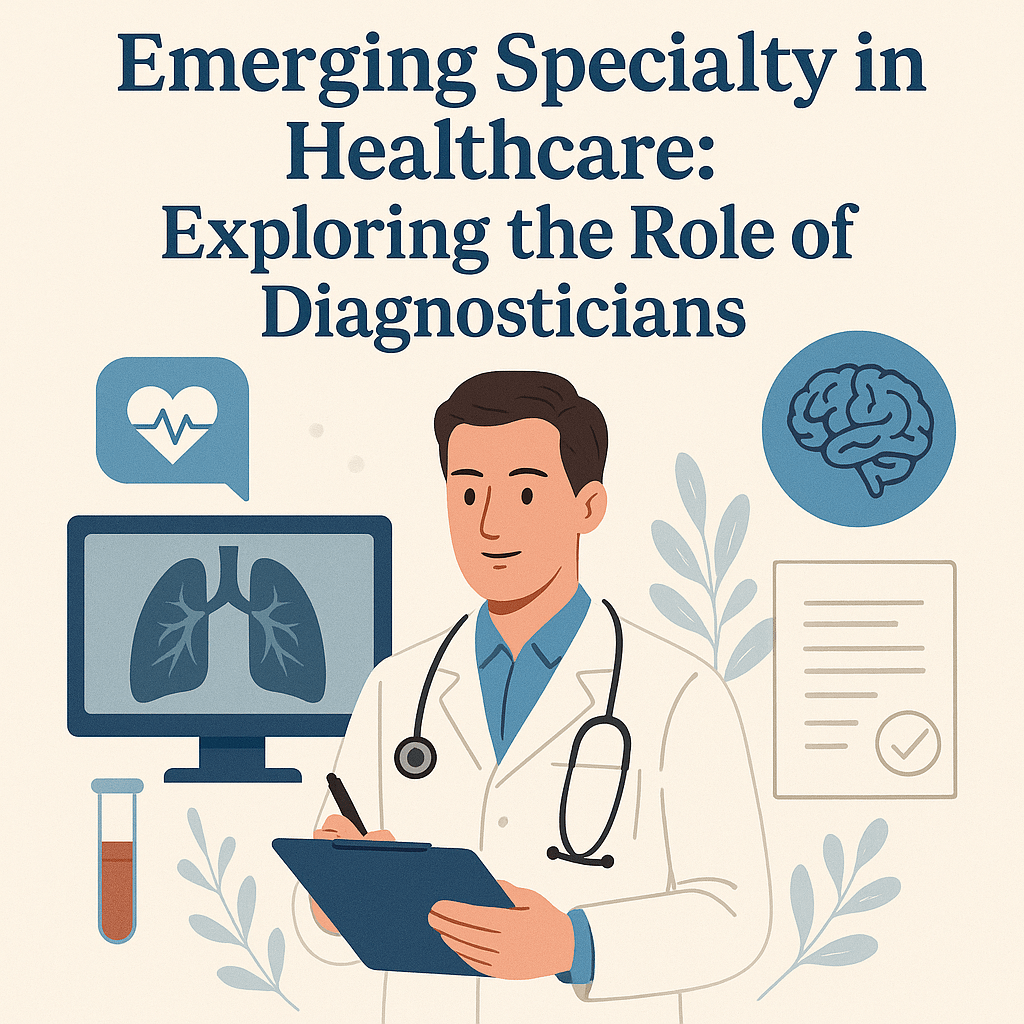
In recent years, the healthcare industry has witnessed the emergence of a new specialty that is reshaping the landscape of patient care: diagnosticians. These medical professionals are becoming increasingly critical in the field, playing a pivotal role in identifying diseases and guiding treatment plans. With the complexity of medical conditions on the rise and the advent of advanced diagnostic technologies, the role of the diagnostician is not only emerging but is also becoming indispensable.
The term «diagnostician» may not yet be universally recognized, but the significance of their work is undeniable. Diagnosticians are specialized doctors who focus on solving medical mysteries, often dealing with challenging and complex cases that require a high level of expertise. Their primary role is to piece together clues from a patient’s symptoms, medical history, and diagnostic test results to arrive at an accurate diagnosis. This process is akin to detective work, where each piece of information could potentially lead to discovering the root cause of a patient’s ailment.
One of the key factors leading to the rise of diagnosticians is the growing complexity of diseases. With the prevalence of chronic diseases, autoimmune disorders, and rare conditions, the process of diagnosis has become more intricate. Standard protocols and routine tests often fall short in identifying these conditions, necessitating the need for specialists who can interpret complex data and recognize nuanced patterns.
Moreover, diagnosticians leverage cutting-edge technologies, such as genomics, advanced imaging, and artificial intelligence, to enhance their diagnostic accuracy. The integration of AI into healthcare has revolutionized the way diagnosticians work by providing tools that analyze vast amounts of data quickly and efficiently. Machine learning algorithms can identify patterns in data that may not be apparent to the human eye, aiding diagnosticians in making more informed decisions.
However, despite the technological advances, the human element remains crucial in the field of diagnostics. Diagnosticians are trained to think critically and holistically, considering not just the immediate symptoms but also the context of the patient’s life and environment. This comprehensive approach ensures that they do not overlook uncommon or rare conditions and can provide a more personalized diagnosis and treatment plan.
The role of a diagnostician also emphasizes the importance of collaboration within the healthcare system. Diagnosticians frequently work in multidisciplinary teams, collaborating with other specialists, such as radiologists, pathologists, and geneticists, to gather diverse insights that contribute to a more accurate diagnosis. This team-based approach is particularly vital in complex cases where multiple systems of the body may be involved.
As the healthcare industry continues to evolve, the demand for diagnosticians is expected to grow. Medical education is beginning to reflect this trend, with some institutions offering specialized training programs and fellowships focused on diagnostic medicine. This development ensures that the future generation of diagnosticians is well-equipped with the necessary skills and knowledge to tackle the challenges of modern medicine.
The rise of diagnosticians also brings about significant implications for patient outcomes. Accurate and timely diagnoses can lead to more effective treatment plans, reducing the risk of complications and improving recovery rates. Furthermore, having a clear diagnosis can alleviate the psychological burden on patients, who may otherwise face prolonged uncertainty about their health conditions.
From a broader perspective, the role of diagnosticians contributes to the efficiency of the healthcare system. By reducing misdiagnoses and unnecessary treatments, they help decrease healthcare costs and alleviate the strain on medical resources. In an era where healthcare systems worldwide are struggling with rising costs and resource constraints, the value of skilled diagnosticians cannot be overstated.
In conclusion, the emergence of diagnosticians as a specialty within healthcare marks a significant development in patient care. Bridging the gap between symptoms and solutions, these specialists play a crucial role in unraveling medical mysteries and ensuring that patients receive accurate diagnoses and appropriate treatments. As medical science continues to advance, the demand for diagnosticians is likely to increase, highlighting their vital role in the ever-evolving landscape of healthcare. The integration of technology, the emphasis on a team-based approach, and the focus on personalized patient care are setting new standards in the field, making diagnosticians essential players in the quest for better health outcomes.



